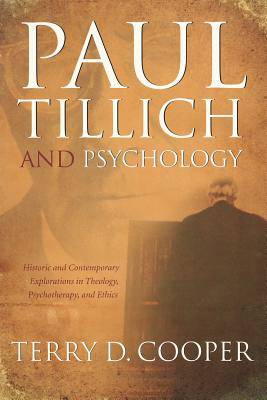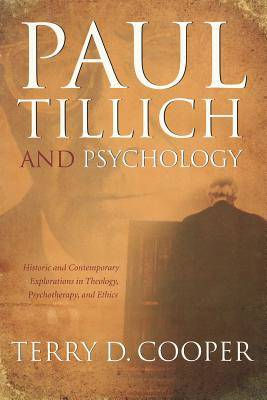
Bedankt voor het vertrouwen het afgelopen jaar! Om jou te bedanken bieden we GRATIS verzending (in België) aan op alles gedurende de hele maand januari.
- Afhalen na 1 uur in een winkel met voorraad
- In januari gratis thuislevering in België
- Ruim aanbod met 7 miljoen producten
Bedankt voor het vertrouwen het afgelopen jaar! Om jou te bedanken bieden we GRATIS verzending (in België) aan op alles gedurende de hele maand januari.
- Afhalen na 1 uur in een winkel met voorraad
- In januari gratis thuislevering in België
- Ruim aanbod met 7 miljoen producten
Zoeken
Paul Tillich and Psychology
Historic and Contemporary Explorations in Theology, Psychotherapy, And Ethics
Terry D Cooper
€ 39,95
+ 79 punten
Omschrijving
Paul Tillich, more than any other theologian of the twentieth century, maintained an energetic dialogue with psychology, and especially psychotherapy. This book explores what Tillich's theology has to offer psychologists and others working in the field of mental health, spiritual development, and pastoral counseling. Tillich's interaction with Carl Rogers, Erich Fromm, Rollo May, and other famous psychologists became an important part of his thinking. Tillich frequently pushed psychologists to see the underlying philosophical assumptions of their work. This investigation of the underpinnings of psychotherapy then encouraged psychotherapists to become more aware of the ultimate questions about meaning, purpose, and ethics that informed their work. Perhaps the greatest contribution this book offers is a careful narrative and analysis of the meetings of the New York Psychology Group, which involved such figures as Tillich, Fromm, May, Rogers, Seward Hiltner, Ruth Benedict, and David Roberts, to name just a few. This important group, which met from 1941 to 1945, dealt with issues that are very much with us today, such as whether faith can be psychologically explained, the meaning of transcendence, the relationship between psychotherapy and ethics, the appropriateness of self-love, and whether human love is parallel with Divine love.
Specificaties
Betrokkenen
- Auteur(s):
- Uitgeverij:
Inhoud
- Aantal bladzijden:
- 232
- Taal:
- Engels
- Reeks:
Eigenschappen
- Productcode (EAN):
- 9780865549937
- Verschijningsdatum:
- 10/11/2005
- Uitvoering:
- Paperback
- Formaat:
- Trade paperback (VS)
- Afmetingen:
- 154 mm x 228 mm
- Gewicht:
- 349 g

Alleen bij Standaard Boekhandel
+ 79 punten op je klantenkaart van Standaard Boekhandel
Beoordelingen
We publiceren alleen reviews die voldoen aan de voorwaarden voor reviews. Bekijk onze voorwaarden voor reviews.









